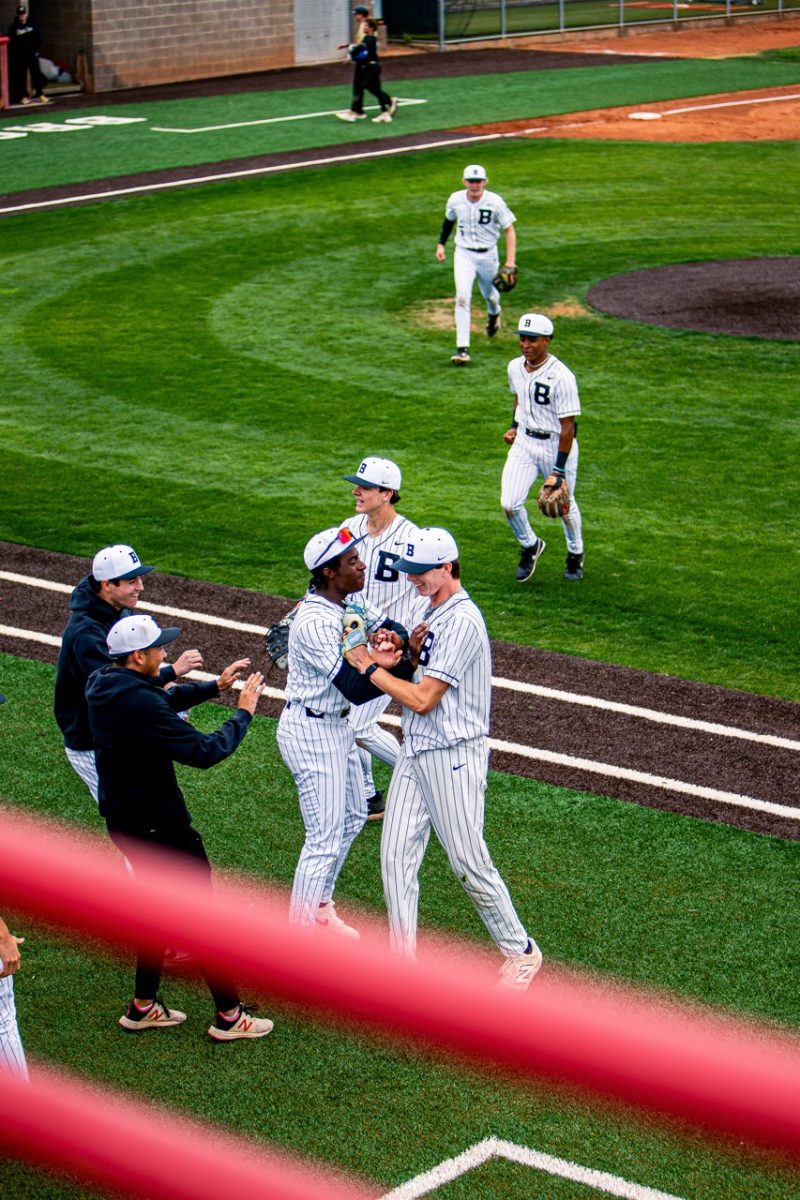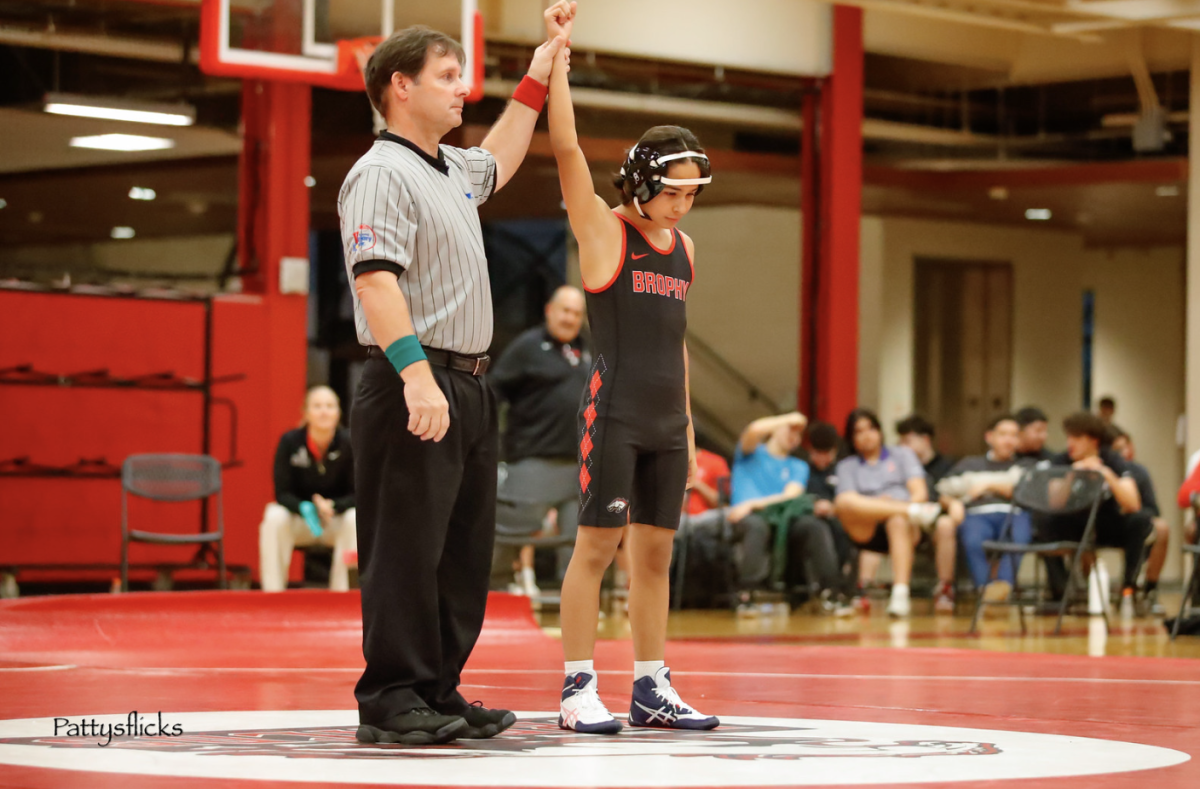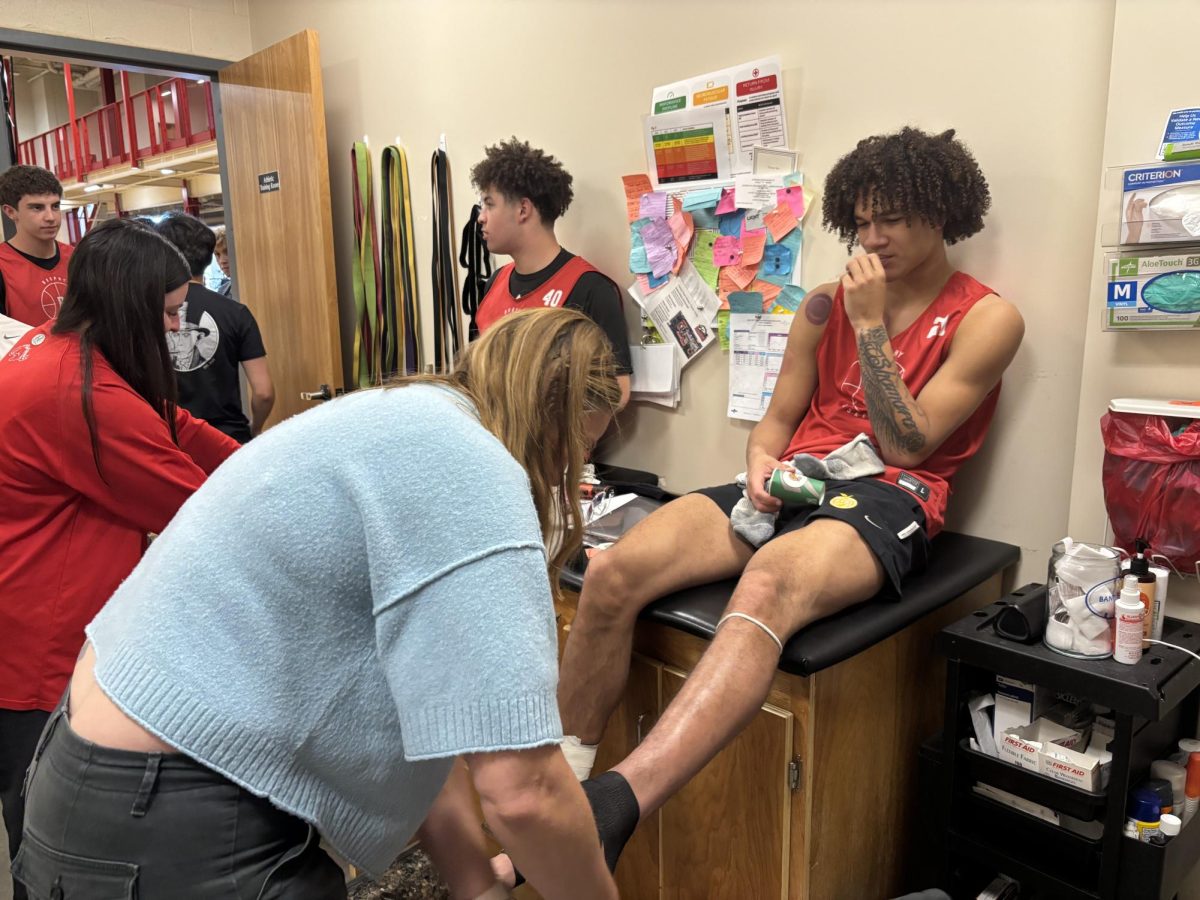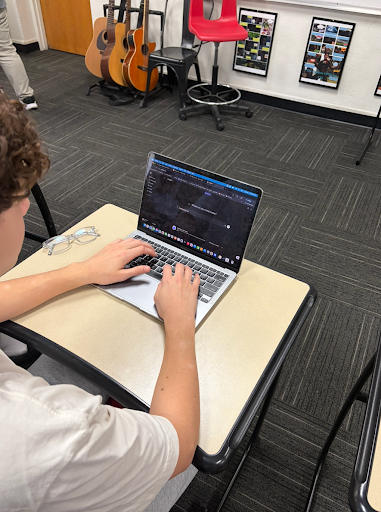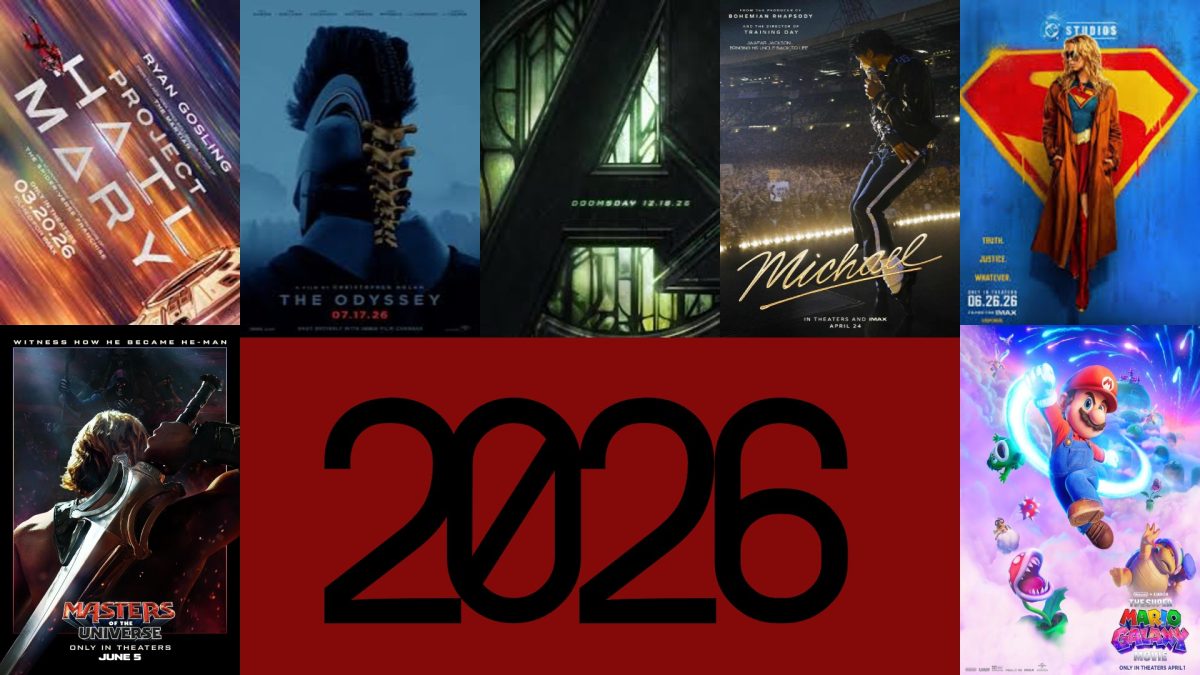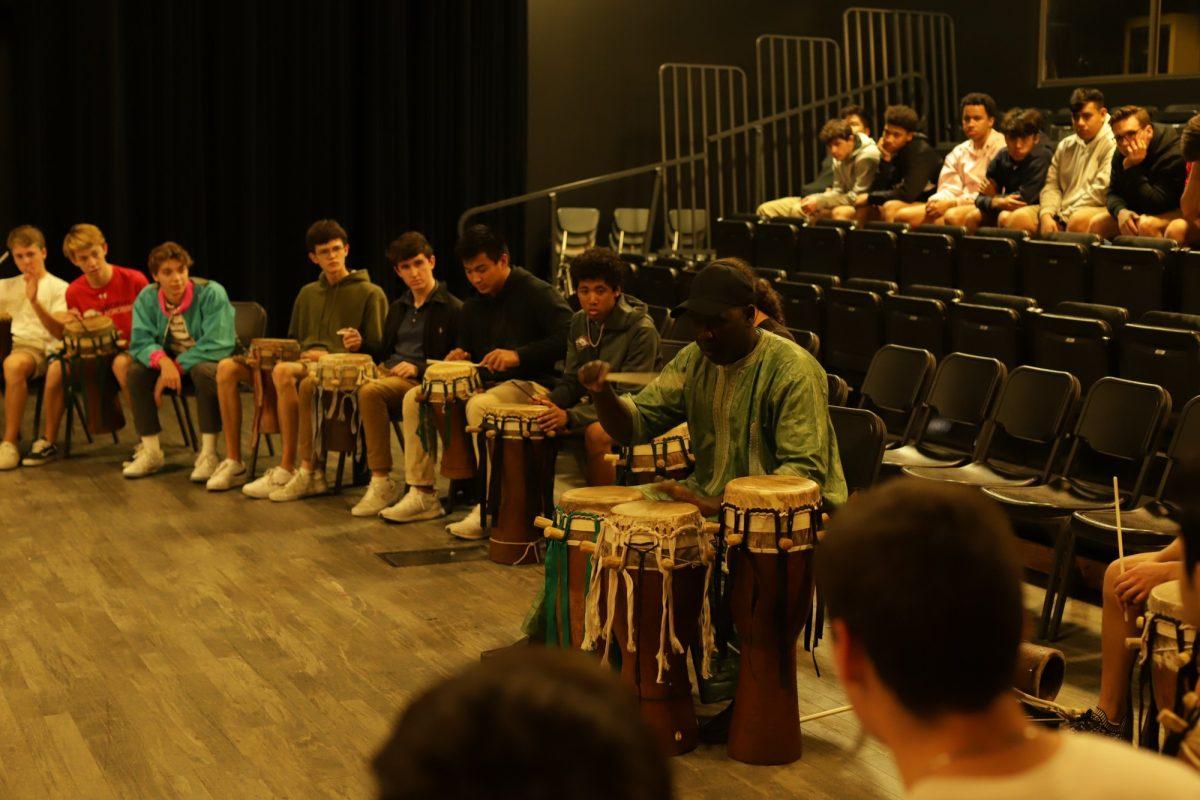Photo by Mark Rossbach ‘21| Dethie Sarr ‘Pape’ Diouf teaches students how to play the Sabar drums in the Black Box Theater.
We often think of music as a simple form of entertainment — a mere harmonization of vocals and instruments to express emotions. However, music has the potential to be so much more than that. For some, music connects people to a culture, a history. Music captures not only our emotions, but our stories of joy, sorrow, heartbreak and confusion. Even further, music heals. And healing through music is exactly what Dethie Sarr ‘Pape’ Diouf does.
Diouf is a Lebu Senegalese Sabar drummer born in Bargny, Senegal. For the entirety of his life, he has played drums.
“[I started] when I was three years old. I just tried crawling, touching the drums, hear the noise, because, my family do that,” Diouf said. “I was born like this.”
However, even before his birth, Diouf was slated to be a drummer.
“[Diouf] comes from a family of drummers,” explains Dr. Sonja Branch, an Arizona State University graduate and a member of a Sabar drumming group. “All of his family, for many many generations are all drummers. So, it’s what his family has done for hundreds of years.”
Diouf explained that from a very young age, he was immediately enthralled by the rhythmic noises of the drums. “When Daddy’s family played, I hear it — coming, touching the drums,” Diouf said.
However, Diouf’s calling to drum didn’t end at the pleasure of the rhythms and beats. Rather, following in the footsteps of his father, grandfather, grandfather’s father and all those who came before him, Diouf became a griot for his people.
As a griot, Diouf has the sacred responsibility of being a storyteller for his people, passing down the most cardinal histories and cultural legacies, maintaining a long West African tradition of oral history.
In addition to his role as griot, Diouf dually held the position of a musical healer, as well.
“His particular skill set is that he was the healer of music for his community,” Dr. Johnathan Robinson explained. “He’s the keeper of songs and would learn all of these songs and play them for any type of ceremony or healing experience that members of the community needed.”
Specifically, one type of healing ritual used by the Lebu ethnic group is the Ndeup healing ritual. This community ritual is often used to treat mental illnesses, including depression, that Western medicines fail to diagnose or alleviate.
The Ndeup ceremonies often take place throughout a span of multiple days, involving a great deal of food, dancing and drumming which can be carried out from sunrise to sunset for days on end. Based in ideas of animism and spirits, the ritual requires incantations, trances and sacrifices in order to both communicate with, expel and appease the spirits causing one’s mental torment.
And by the end of the string of days, if the ceremony worked, the person suffering will be relieved of their mental burden. For many, these healing ceremonies leave profound impacts on their lives.
Andrew Solomon, a critically-acclaimed Pulitzer Prize finalist, YALE LQBTQ+ mental health special adviser and someone who has personally suffered from depression, wrote about his own personal voyage into the unknown of the Senegalese Ndeup healing rituals as a means to treat depression.
After having heard about existing Western treatments for depression, such as electroshock treatments, medication and therapy, Solomon sought different culture’s answers to dispel this worldwide plague we have come to know as depression.
During his time in Senegal, he took part in a ten day Ndeup healing ceremony in which he was covered in animal blood, stripped naked and tied up with ram intestines, among many other things.
However, at the end of the ritual, Solomon held a newfound respect for the practice and described it as “quite an astonishing experience” and felt “so up!”
Like many other members of the Senegalese community, Diouf respected his roles as griot and healer and saw it has his vocation to fulfill these roles to the best of his abilities.
“This is my job, this is what I do to live, this is what I do to help myself, my family, and support all the people in Senegal,” Diouf said. “So that’s why I respect drumming. I love it, I respect it and I want to do it right all the time. Because this is my job, this is my office, this is my everything — that’s how I like it.”
For Diouf, he has an ineffable bond with music, as it tells the story of his connection with his history and culture. In Senegal, Diouf continued this connection by teaching drums to others.
“In Senegal, I go to different schools and taught the kids,” Diouf said. “I can do so many things, but I choose to teach at schools because I want to see different kids, different energies from kids, and I want to learn too.”
After leaving Senegal and moving to Los Angeles twenty years ago, Diouf has continued to visit Senegal yearly and teaches the tradition of storytelling and healing to the next generation of children.
On Nov. 15, Diouf came to Brophy to teach Sabar drumming and to play for, and with, Brophy students and faculty.
“This is what I want, this is what I was looking for my whole life,” Diouf said. “So, when I came here, that’s what I desired; I like to come here, to go to different schools and teach — that helps me too.”
Dr. Robinson, describing Diouf’s experiences as a “wealth of knowledge that all of Brophy can pretty much draw from,” was determined to bring Diouf to Brophy.
Through his connections with Dr. Branch, a former college friend of his, Dr. Robinson organized and set up the Sabar drumming event.
“Originally, I contacted my friend Dr. Sonja Branch,” Dr. Robinson explained. “She did African drumming at ASU and has been to Senegal multiple times, as well.”
As a result of her frequent travels, Dr. Branch had the opportunity to meet Diouf.
“She met [Diouf] over at Senegal,” Dr. Robinson said. “And when the Dr. Mark Sunkett, the old African drumming class professor, passed, Sonja Branch has kind of taken over a lot of the African drumming for ASU.”
A member of the group Ensemble Ndeye Soxna (ENdS), which – according to her website – prides itself as “Arizona’s only performing ensemble specializing in Sabar drumming”, Dr. Branch has, not only connections, but personal experience with the “traditional drums and rhythms of Senegal.”
Both her, and Pape’s, talents were showcased in the Black Box Theater. All three of Dr. Robinson’s band classes that day had the opportunity to interact directly with Diouf and play the Sabar drums with him. Other students and faculty were encouraged to attend one of the five sessions that Pape performed that day, and in the case of extra drums, were also given the opportunity to play alongside him.
“My main drive was to just bring someone different, versus just a normal flute orchestra kind of person that you can easily find here in the city,” Dr. Robinson said. “I think that having a master drummer from Senegal, to come and talk about his experience as being a drummer … was very interesting.”
During Diouf’s performances, he demonstrated an adept handling of the drums and played up to five drums at a single time.
However, Diouf points out that this is a skill that he has accumulated after a lifetime of hard work and practice, and stresses the importance of putting oneself fully into anything one does.
“My teacher used to play twelve drums, and I try to do that sometimes,” Diouf said. “ It’s hard, but I know I can do it. You got to maintain yourself and your energy, and then you can do it.”

